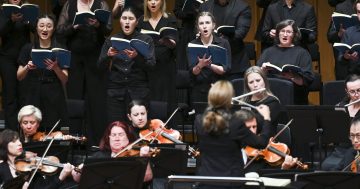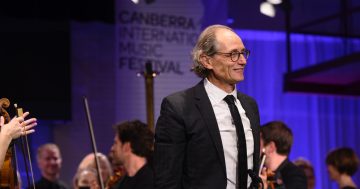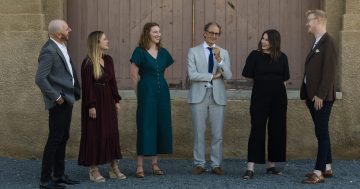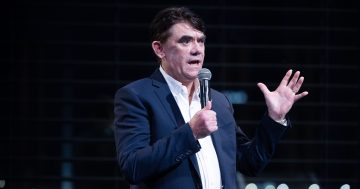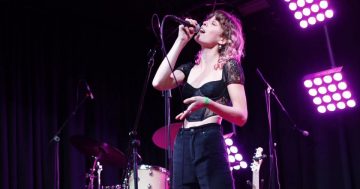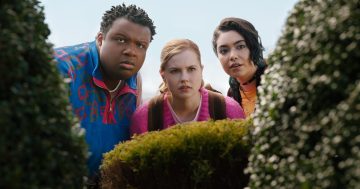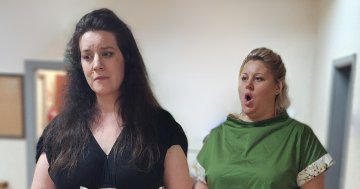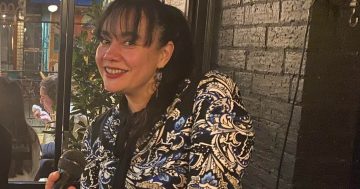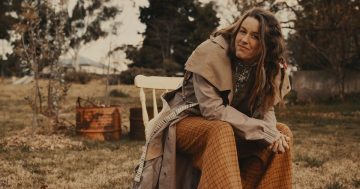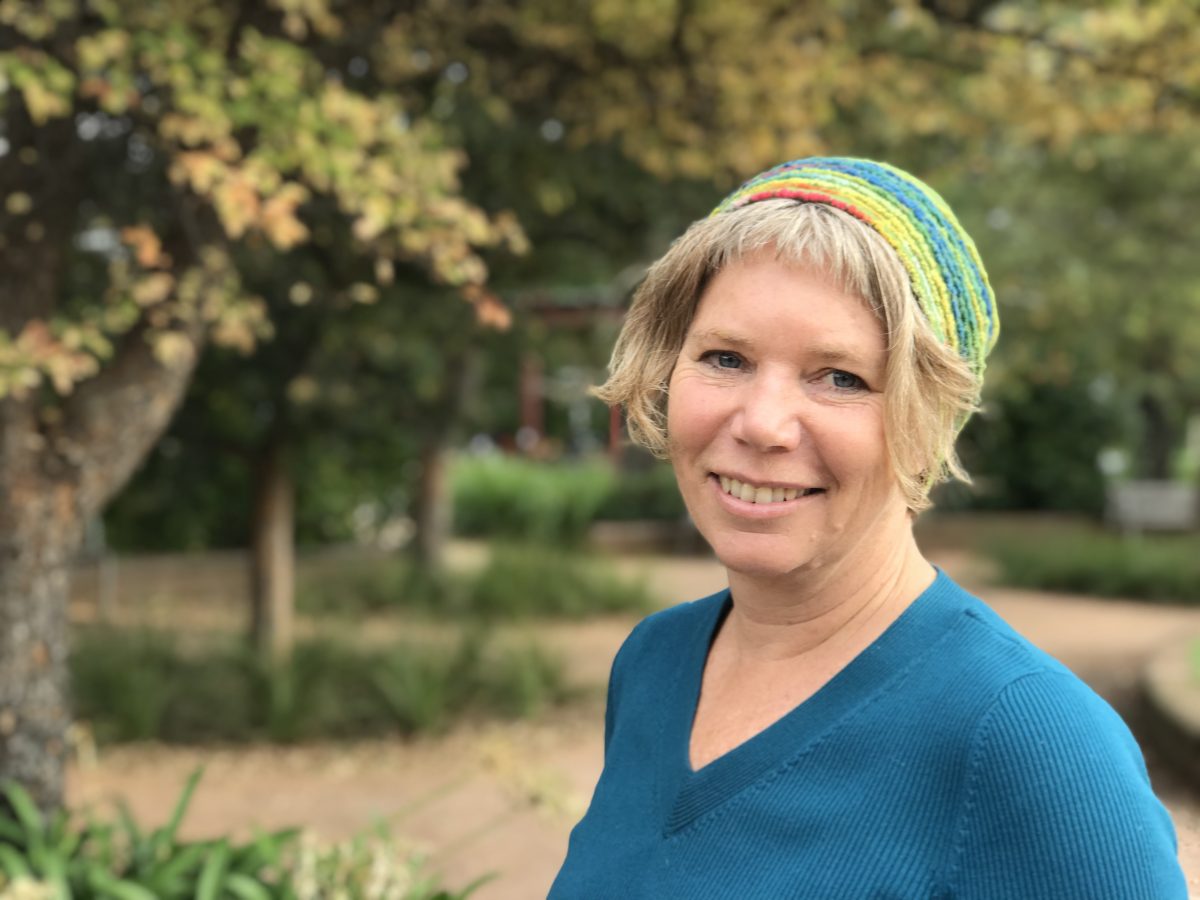
Rachel Hore helps people share the love and joy of music. Photo: Supplied.
Rachel Hore has always been drawn to music. At four years of age, she went around the house singing “In come the dollars, in come the cents”, the jingle that introduced Australians to decimal currency in 1966.
“I knew the entire words,” she said. “And at six I used to visit the neighbours to play their piano, although I’d never had a lesson.”
Those early years played an important role in her love for music in many ways.
Rachel said although her father died when she was very young, music became a solace and allowed her to express grief that couldn’t be spoken.
Her music-loving mother, now 87, never had the opportunity to learn music but was also integral in her daughter’s appreciation for melodies and song.
“She gave that [appreciation for music] to me,” Rachel said. “She saved up and bought me a piano when I was eight.”
Now an acclaimed singer, songwriter and choral leader, Rachel was awarded an OAM in 2014 for her work with choirs and communities.
Her great love of choral music was born from 1980 to 1984 at the NSW Conservatorium of Music where she studied to become a music teacher.
“One of my lecturers Richard Gill was inspirational, passing on the love of music,” she said. “Now I want to do the same when I lead a group. I want the audience to experience joy and love.”
Rachel taught in high schools for several years but her highlight came sharing music in a special school for primary students with emotional and behavioural disturbances.
“It was one of the best experiences I’ve had as a teacher.”
During this time she juggled teaching with her increasingly successful a cappella group Arramaieda.
In the end, Rachel chose choral work.
“I love teaching choir whether it’s children or adults. It feels like my calling.”
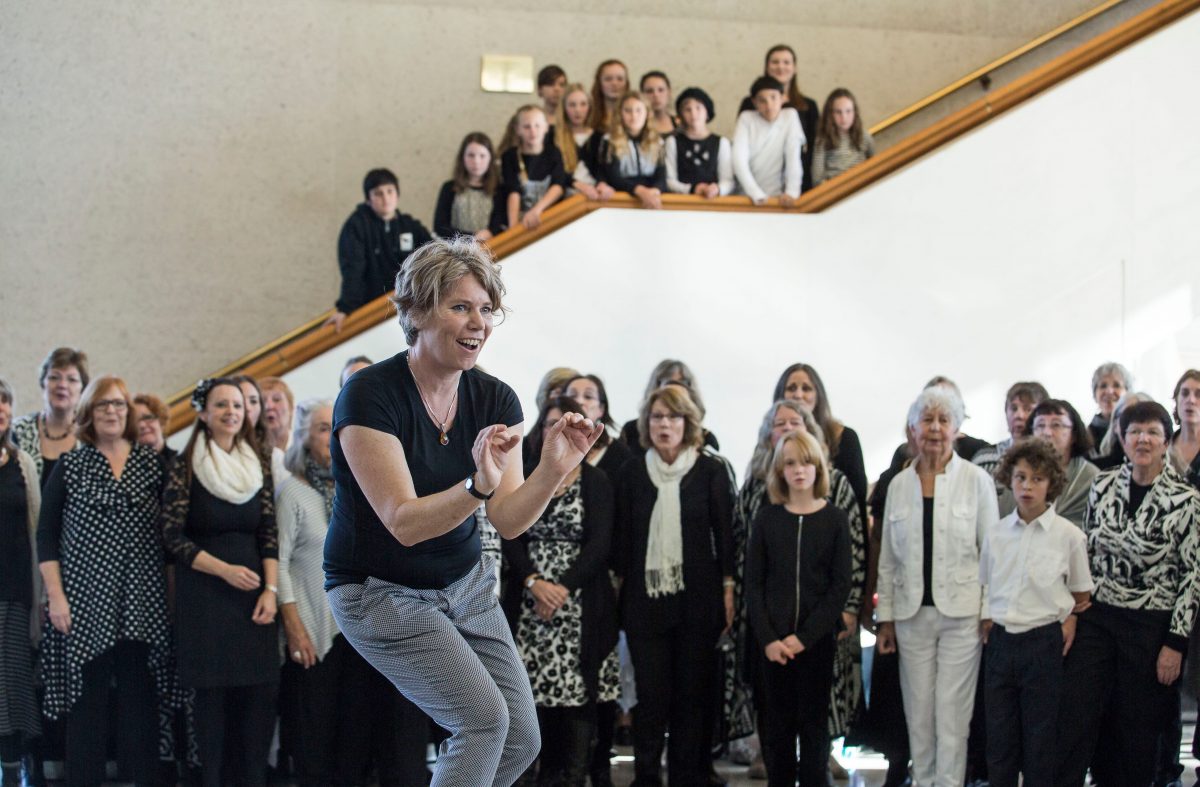
Rachel and the Pop Up Choir performs at the High Court of Australia in 2017. Photo: Lena Logan.
Born in Sydney, Rachel has called Canberra home for eight years and taken the city to her heart.
“I love so much about the lifestyle here – such as cycling and being close to nature.
“I love it. I’ve become a ‘Canbassador’.”
She was also quick to start the Pop Up Choir, which now boasts 100 singers.
“I noticed there were all these incredible spaces in Canberra, with not many people. My idea was to fill those spaces with sound.”
The choir has sung at the High Court of Australia, the Portrait Gallery, a local farmers’ market, and this year performed at the National Folk Festival despite the pandemic disrupting rehearsal opportunities.
Rachel’s commitment to bridging cultures and creating communities has developed with her musical journey.
“I’ve been fortunate to be invited to teach music in remote Aboriginal communities,” she said.
“In that process I’ve experienced how an exchange of song and singing allows us to meet with great integrity, despite cultural and language differences.
“We have the language of music in common. Music bypasses the head into the heart.”
Her work as a musician in Aboriginal communities since 1995 has built connections in the central and western desert region and become a launching pad for creating Big Sing in the Desert, a unique music and cultural exchange near Alice Springs.
“Singers from six central desert Aboriginal communities joined me and co-tutor Morris Stuart, with singers from across Australia. Big Sing has become a place where Indigenous and non-Indigenous Australians can meet in a safe and joyful place.”
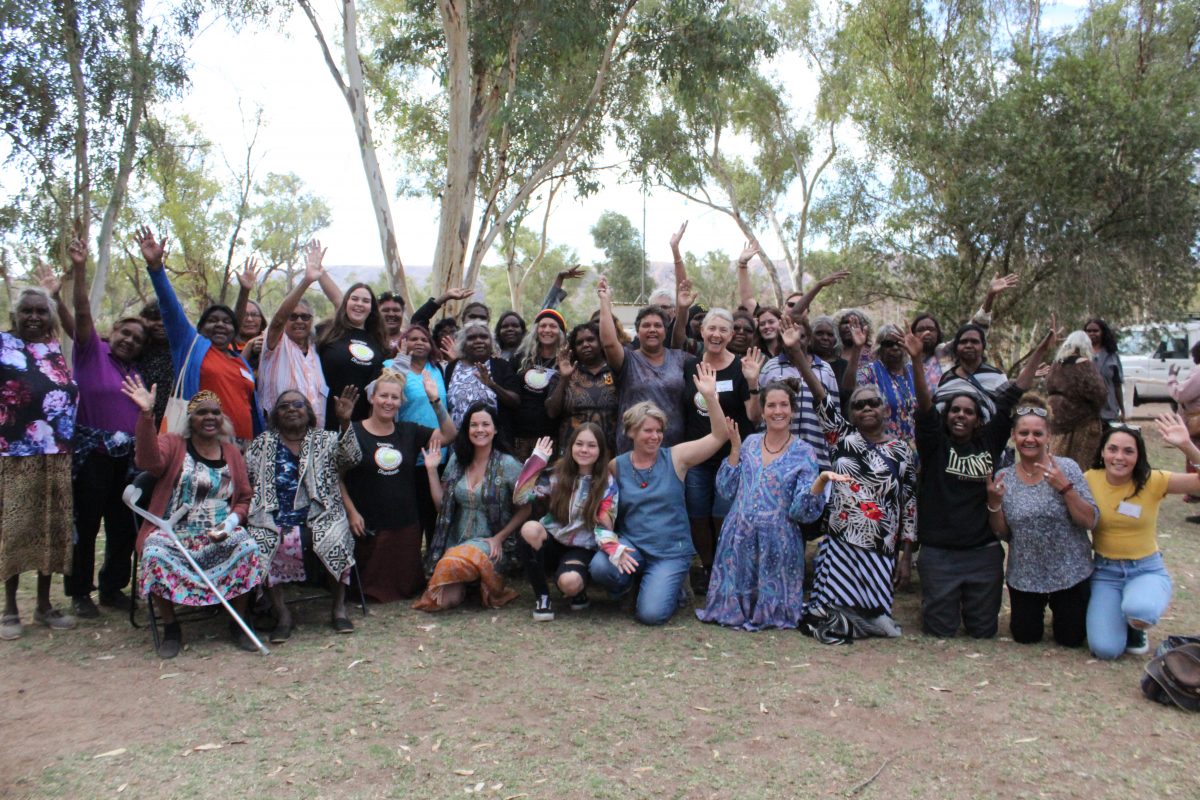
Rachel celebrates with sponsored singers at Big Sing in the Desert in 2019. Photo: Amy Jean Harding, courtesy of Big Sing Inc.
The events have flourished over the past 10 years and Big Sing Inc has recently become a registered charity.
A sister event – Big Sing by the Sea at Forster – led by local Aboriginal Worimi Elders is scheduled in September this year.
Big Sing Inc will hold a fundraiser on the Kambri cultural precinct at the Australian National University (ANU) on 8 June. It will feature The Song Keepers, a film showing the stories of four generations of Aboriginal women who regularly attend Big Sing in the Desert.
And Rachel’s plans beyond that?
“I have a dream for a Magical Mystery Tour around Canberra, bringing together my love of cycling and singing. COVID has delayed it so far. But who knows?”












